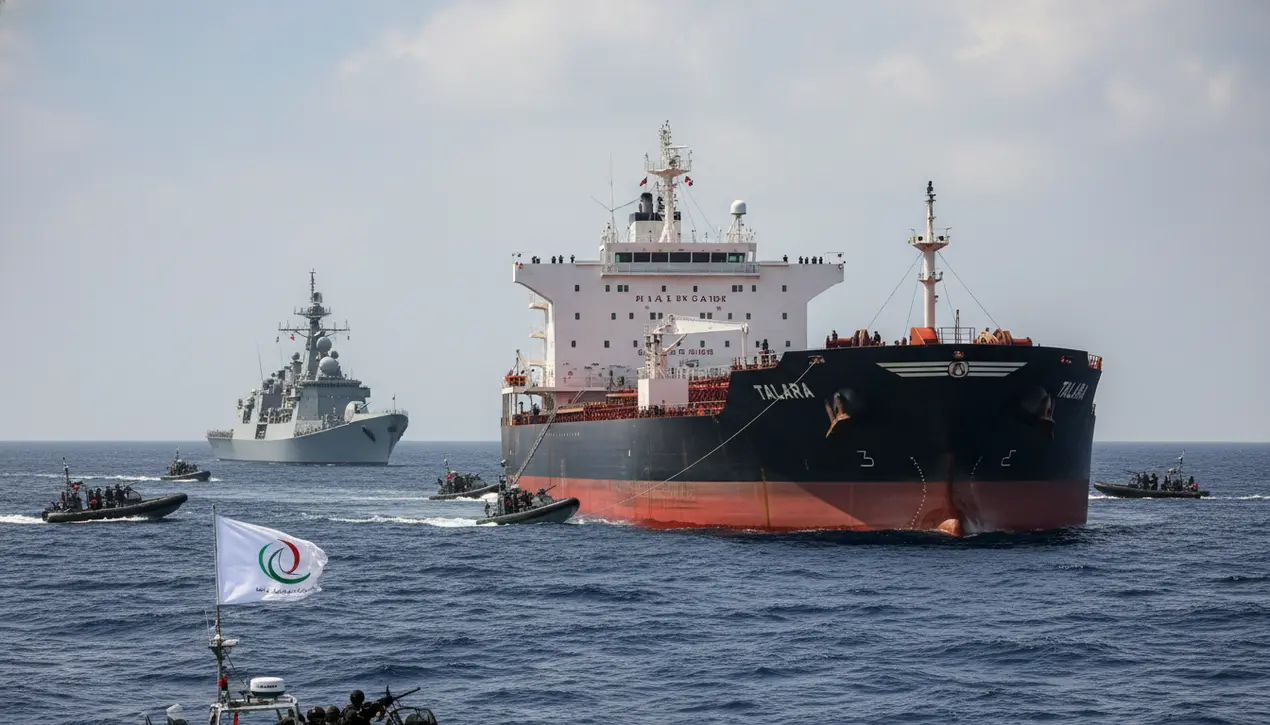
Politicsconflict & defenseMilitary Operations
Iran Seizes Talara Tanker in the Strait of Hormuz.
OL
Oliver Scott
2 hours ago7 min read
The seizure of the Talara tanker by Iranian forces in the Strait of Hormuz is not an isolated incident but a calculated move in a high-stakes geopolitical chess game, one where the board is the world's most critical oil chokepoint. This latest escalation, occurring in waters so narrow you can almost see across them, follows a well-established pattern of Iranian maritime coercion, a tactic deployed to signal resolve, exert pressure, and retaliate against perceived adversaries without triggering a full-scale military confrontation.The vessel, reportedly en route from the UAE to Singapore, was intercepted under the familiar, and often nebulous, pretext of a 'violation of maritime laws'—a claim that Western naval commanders and intelligence analysts immediately view with deep skepticism, interpreting it as a direct response to ongoing economic sanctions or recent actions by allied nations. The strategic calculus here is starkly clear: approximately 21 million barrels of oil, representing nearly a fifth of global consumption, pass through this 21-mile-wide strait daily.A single incident, like the detention of one tanker, can send immediate shockwaves through global energy markets, causing Brent crude futures to spike and reinsurers to hastily recalibrate risk premiums for the entire Persian Gulf region. This action must be analyzed through the lens of recent history, from the tit-for-tat tanker seizures between Iran and the West to the more brazen attacks on commercial shipping by Houthi proxies in the Red Sea, illustrating a broader, coordinated strategy of asymmetric warfare aimed at the global economy's Achilles' heel.The immediate operational risk is a miscalculation—a misinterpreted radar blip or an aggressive maneuver by a Revolutionary Guard Corps speedboat that spirals into a deadly exchange, forcing the US Fifth Fleet, perpetually on patrol just over the horizon, to respond in kind. For global shipping conglomerates, the scenario planning is now frantic; contingency analysts are likely modeling outcomes ranging from a protracted 'gray zone' conflict of harassments and delays to a worst-case, albeit low-probability, scenario where Iran attempts a temporary but effective closure of the strait, an event that would trigger an unprecedented global energy crisis.The long-term consequence is the further fragmentation of global maritime security, pushing nations towards larger naval escort operations and cementing a new normal of heightened risk and cost for every barrel of oil that travels from the Middle East to the world. This is not merely a news bulletin; it is a real-time stress test of international deterrence, a demonstration of how a regional power can leverage geographic fate to hold the global economy hostage, and a stark reminder that the next major global crisis may not start with a declaration of war, but with the boarding of a commercial ship in the warm, tense waters of the Gulf.
#Iran
#Strait of Hormuz
#tanker seizure
#maritime security
#oil transport
#featured
Stay Informed. Act Smarter.
Get weekly highlights, major headlines, and expert insights — then put your knowledge to work in our live prediction markets.
Comments
Loading comments...
© 2025 Outpoll Service LTD. All rights reserved.